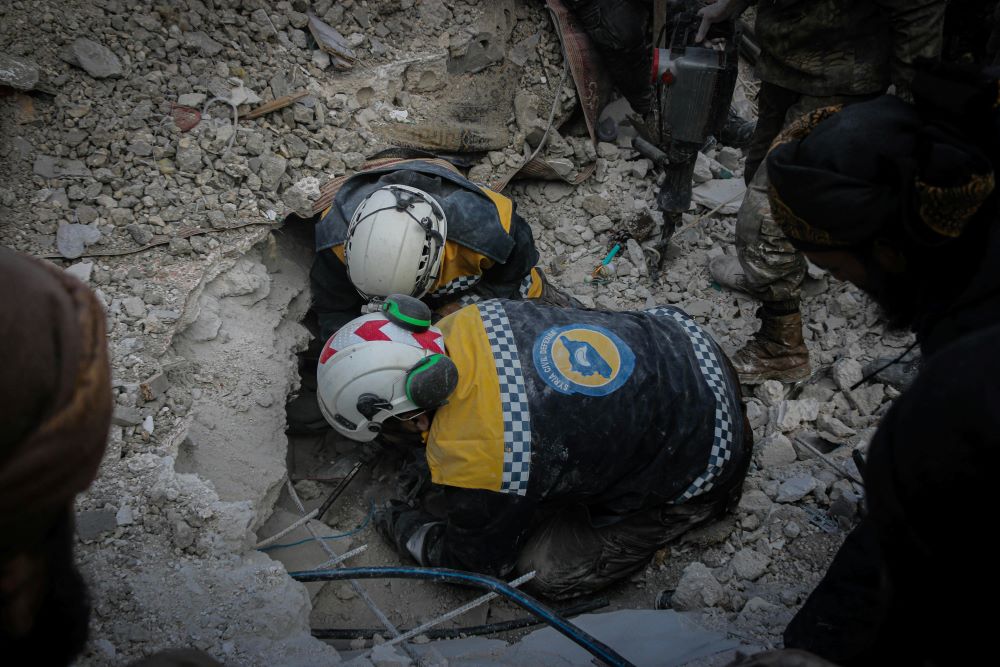News
Attack On Aid Workers During Conflict

Without a shadow of doubt, we all can attest to the disturbing surge in the number of humanitarian crises and emergencies in our world today. From Ukraine to Gaza, Yemen to Ethiopia, Syria to Sudan, conflicts are on the rise. With many countries at war, these are indeed hard times.
In the midst of it all, it is the world’s most vulnerable people that receive the hit, leaving lives lost and negatively impacting livelihoods and access to essential services.
Conflicts are not new to the eyes, neither are natural disasters. What is relatively strange is the current heightened attacks on aid workers in conflict zones. Aid workers who are on the frontline of the world’s conflict, often working under great pressure in dangerous areas to help people in need are being killed in unprecedented numbers.
This alarming trend could be traced back to 2023 where it was recorded in the Aid workers Security Report that more aid workers died by violence than in any previous year on record, with 280 fatalities reported in 33 countries. The highest numbers were reported from Gaza, where 163 aid workers lost their lives in the first three months of the conflict, mostly as a result of airstrikes. Countries like South Sudan, Sudan, Syria, Israel, Ukraine, Ethiopia, Somalia, Myanmar and DR Congo had numbers reported in their regions respectively.
This trend continues in 2024 and may exceed the numbers of 2023 as the United Nations Office for the Coordination of Humanitarian Affairs (UNOCHA) citing the Aid Workers Security Database acknowledges that 172 aid workers have been killed as of August 7 2024. Several aid workers are also suffering from being kidnapped or sustaining life-changing injuries due to such attacks.
These numbers are not just statistics; they represent the lives of brave individuals who risk everything to provide humanitarian assistance in the most challenging environments.
The consequences of these attacks extend far beyond the immediate loss of life. They disrupt humanitarian assistance, fuel suffering for affected populations, and increase the risk of disease outbreaks. Moreover, the psychological trauma inflicted on surviving aid workers can have long-term effects.
One can’t but wonder how the security of aid workers deteriorated and has come under such threat. One factor mostly considered is the emergence of advanced weapons and drones, making it hard to differentiate between combatants and civilians or aid workers. But this is no excuse!
It appears to be an act of impunity, as it is also becoming more common from stories of parties to a conflict to violate the agreements laid down in the International Humanitarian Law.
It is commendable however, that the International Community, looking at the worrying trend is sounding an alarm and coming together to demand action. Such communities of aid workers and their supporters have organized several events to stand in solidarity and spotlight the horrifying toll of attacks on humanitarian staff.
The UNOCHA on its part is stressing that attacks on aid workers constitute war crimes under the International Humanitarian Law. The UN organization also emphasizes that these attacks undermine the principles of the humanitarian law and put millions of people in need at risk. In addition, the UN Security Council has passed ten resolutions, urging states to ensure that unlawful killings of aid workers do not remain unpunished.
To address this crisis, it is essential to consider enhanced protection measures for aid workers, ensure accountability for perpetrators through investigations and prosecutions, strengthen international cooperation to prevent attacks, and possibly increase funding for Humanitarian responses.
It is also important to add a voice to re-echo that even in times of war, rules still apply, and to reiterate that the lives of aid workers are as precious. As Martins Griffiths, former Under-Secretary-General for Humanitarian Affairs and Emergency Relief Coordinator of the UN emphasized, ‘The killing of aid workers is a grave breach of humanitarian law’, there is therefore a need for collective action to protect them and ensure the continuation of vital humanitarian work.













